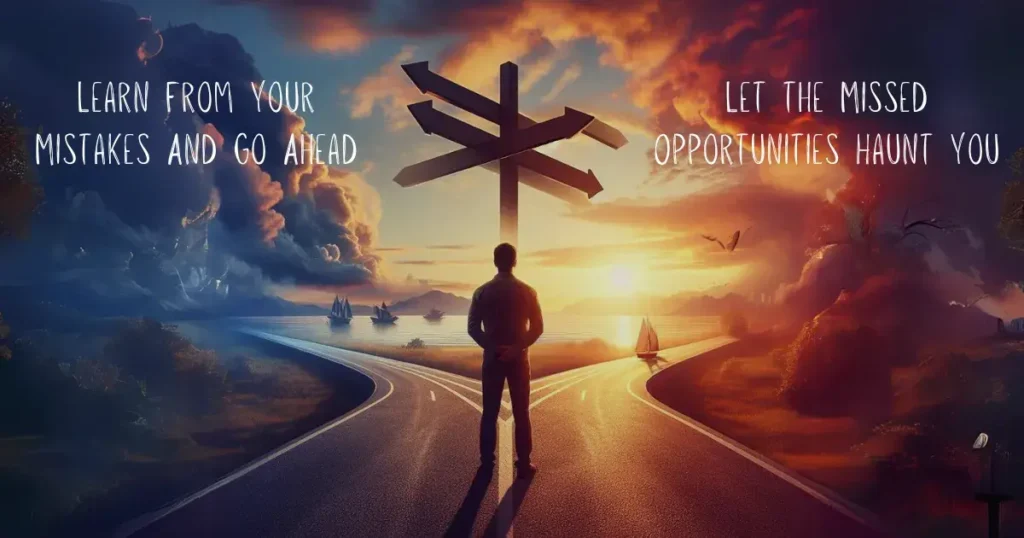As the year draws to a close, it’s natural for us to pause and reflect on the past 12 months. We may think about our accomplishments, both big and small, as well as our failures and missed opportunities. This yearly reflection can be a valuable tool for personal and professional growth.
On New Year’s Eve, it’s a universal tradition to reflect on the bygone year. For young professionals, this reflection is a particularly important opportunity to assess their progress.

10 Questions To Consider For Year-End Reflection
For professionals, taking time to reflect on the year can help you to identify areas where you’ve excelled and areas where you can improve. It can also help you to set achievable goals for the future.
Here are 10 year-end reflection questions to help you gain insights into your personal growth and development:
1- What were your biggest accomplishments and challenges this year?
Reflecting on your accomplishments and challenges helps you identify areas of strength, growth, and resilience. By understanding what you’ve achieved, you can recognize your capabilities and build upon them. Similarly, examining your challenges allows you to learn from mistakes, develop coping mechanisms, and enhance your problem-solving skills.
2- What are your proudest moments and most significant regrets?
Acknowledging your proudest moments reinforces positive behavior, strengthens your self-esteem, and reaffirms your values. Reflecting on your regrets provides valuable learning opportunities. By understanding the root causes of your regrets, you can make conscious adjustments to avoid similar patterns in the future.
3- What new skills or knowledge did you acquire this year?
Identifying new skills or knowledge gained throughout the year highlights your commitment to continuous learning and personal growth. Reflecting on how these advancements have impacted your life allows you to appreciate the value of lifelong learning and recognize the positive effects on your personal and professional development.
4- What relationships nurtured, strengthened, or changed this year?
Evaluating your relationships provides insights into the connections that have positively influenced your journey and those that may require reevaluation. Recognizing the individuals who have supported your growth allows you to express gratitude and strengthen those bonds. Identifying relationships that may hinder your progress encourages you to make mindful adjustments to protect your well-being.
5- What personal growth areas did you focus on this year?
Reflecting on areas where you consciously sought personal development allows you to assess your progress, identify areas for continued growth, and maintain momentum in your self-improvement journey. Recognizing your commitment to personal growth demonstrates your dedication to self-awareness and a continual desire for betterment.
6- What habits did you cultivate or break this year?
Identifying positive habits that have improved your health, productivity, or overall well-being reinforces their importance and encourages you to maintain them. Acknowledging negative habits that have hindered your progress provides opportunities for mindful elimination and the cultivation of more beneficial behaviors.
7- What new experiences or challenges did you step outside your comfort zone to embrace?
Reflecting on instances where you pushed your boundaries, tried new things, or faced your fears allows you to appreciate your capacity for growth, resilience, and adaptability. Celebrating these achievements reinforces your courage and encourages you to continue expanding your comfort zone in the future.
8- What new perspectives or insights did you gain this year?
Identify moments where your worldview expanded, your understanding deepened, or your perspectives shifted. Recognizing the catalysts for these changes demonstrates your willingness to learn and adapt, which are essential qualities for personal and professional success.
9- What are you most grateful for this year?
Expressing gratitude for the blessings, opportunities, and people that have enriched your life fosters a positive mindset, enhances resilience, and strengthens your appreciation for the good in your life. Acknowledging the positive aspects that may have been overlooked during the year’s challenges cultivates a sense of contentment and well-being.
10- What are your goals and aspirations for the coming year?
Setting clear and actionable goals for personal and professional growth provides direction, motivation, and a framework for meaningful progress. Aligning your aspirations with your values, passions, and purpose ensures that your goals are aligned with your authentic self and contribute to a fulfilling life.

Reflect with Purpose, Plan with Precision
Take a moment to pause and reflect on your past year, both the triumphs and challenges. Consider your accomplishments, setbacks, and everything in between. This introspection will provide valuable insights for your future endeavors.
Don’t overlook the seemingly small steps or subtle interactions. Every achievement, no matter how insignificant, contributes to your overall growth.
As you reflect, envision your aspirations for the year ahead. With the lessons learned from the past as your guiding light, craft clear and attainable goals. Ensure your goals align with your values and aspirations to fuel your purpose.
Remember, the future is an open canvas, waiting for your brilliance to shine through. Embrace this opportunity for transformation and leave your mark on the world.
A Call to Action: Seize the Remaining Days
With over 30 days left in the year, you have a valuable opportunity to make a difference. Don’t waste this time!
- Take action: Don’t just sit around and wait for things to happen. Get out there and make things happen. Take risks, try new things, and don’t be afraid to fail.
- Set micro Goals: Define clear objectives for this final stretch. What can you achieve before the curtain falls in 2023? Let your goals be your guiding stars, directing your efforts with precision.
- Take Bold Steps: Don’t be a passive spectator; be an active participant in your narrative. Pursue your aspirations, make things happen, and let your actions define the closing chapter of the year.
- Embrace Growth: Failure is a part of life. Don’t be afraid to make mistakes. Learn from your mistakes and use them to grow as a professional.
- Celebrate Achievements: Regardless of scale, every accomplishment deserves acknowledgment. Celebrate your wins, and let the joy fuel your onward journey.

Making a Pledge to Yourself
By taking the time to reflect on the year and make the most of the rest of it, you can set yourself up for a successful year ahead. When you look back on 2023, you’ll be proud of what you accomplished. It’s not just about ending the year; it’s about concluding it on a note that resonates with the harmony of personal and professional achievements.
Seize the remaining days – they are not just dates on a calendar but opportunities waiting to be embraced. When you reflect on them this New Year’s Eve, let your heart swell with pride at the journey you’ve crafted, the goals you’ve conquered, and the professional tapestry you’ve intricately woven. The best is yet to come, and these last 30 days are your canvas – paint it with purpose, passion, and the unwavering commitment to make yourself proud.
Remember, you are capable of achieving great things. Don’t let anything hold you back. Seize the remaining days of the year and make the most of them.



